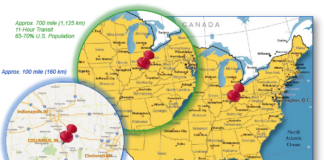 The word recession has been emblazoned in the psyche of most Americans over the past few months. The term has become ubiquitous (although most people probably don’t know the true definition), and you can’t escape it these days.
The word recession has been emblazoned in the psyche of most Americans over the past few months. The term has become ubiquitous (although most people probably don’t know the true definition), and you can’t escape it these days.
It seems that all this talk of recession has forced employers to cut 80,000 jobs in March, the highest job loss in five years, according to an AP article. An array of industries, including construction, manufacturing, retailing, and financial services, were all hit, outpacing gains in a few industries, such as government and education. This stands as the third straight month of losses this year, pushing the unemployment rate to 5.1% from 4.8%–the highest since September 2005, when Hurricanes Katrina and Rita dealt a deadly blow to the U.S. economy.
According to the article:
The economy is suffering the effects of a housing collapse, a credit crunch and a financial system in turmoil. That’s causing people and businesses to hunker down, crimping spending, capital investment and hiring. Those things in turn further weaken the economy in what has become a vicious cycle.
For the first time, Federal Reserve Chairman Ben Bernanke acknowledged Wednesday that the country could be heading toward a recession, saying federal policymakers are “fighting against the wind” in combating it. Many other economists and the public believe the recession already has arrived.
Bernanke wouldn’t tip his hand about the Fed’s next move. However, many economists believe the central bank will lower interest rates again when they meet later this month.
So, it seems that there is still some time to avert a true recession, which is generally defined as a decline in real gross domestic product for two consecutive quarters (6 months). It is hoped that the government’s latest $168 billion stimulus package of tax rebates for individuals and businesses will help revive consumer confidence and the economy, although some analysts feel the gesture is a little too late to stave off the impending recession.
I, for one, plan to do my part to help ward off a recession by using the funds to purchase a brand new Macbook!
On a side note:
The National Bureau of Economic Research’sframework for judging recessions:
A recession is a significant decline in economic activity spread across the economy, lasting more than a few months, normally visible in real GDP, real income, employment, industrial production, and wholesale-retail sales. A recession begins just after the economy reaches a peak of activity and ends as the economy reaches its trough. Between trough and peak, the economy is in an expansion. Expansion is the normal state of the economy; most recessions are brief and they have been rare in recent decades.














![[VIDEO] Get More for Your Business in Ardmore. Oklahoma](https://businessfacilities.com/wp-content/uploads/2024/02/maxresdefault-324x160.jpg)
